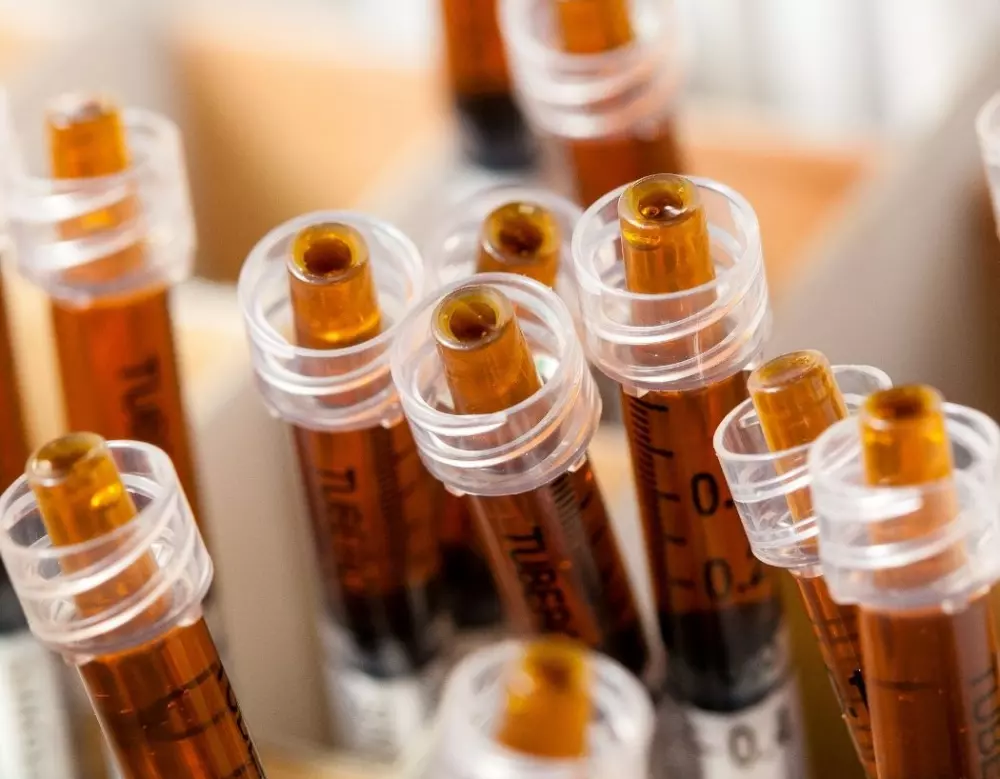Cannabis distillates are becoming increasingly popular in the rapidly growing cannabis industry. THC distillate is a potent, versatile product that has no smell, and consists of almost pure THC. Like many other cannabis products, there are pure CBD distillates as well, which do not have the psychoactive effect of THC distillate, and are used mainly for medicinal purposes.
In this article, we'll take a look at what cannabis distillate is, how it’s produced, how it’s consumed, and how it measures up to the other types of cannabis concentrates available on the market.
What is cannabis distillate?
Cannabis distillate is an extract of the cannabis plant that has been stripped of all plant materials and compounds except one specific cannabinoid, usually THC or CBD. Distillate is the base ingredient of many edibles and most vape cartridges, and has no taste or smell. Distillate refers to the purification process that separates the cannabinoids from the rest of the plant matter.
Distillate is extremely potent. The THC (or CBD) content of distillate is usually somewhere between 90 and 99%.
During the distillation process, the active components of the plant are decarboxylated. This means that unlike other concentrates, distillate is ready to be consumed in edibles and doesn't require heating to be 'activated'.
How is cannabis distillate made?
Concentrates, like shatter, budder and wax are extracted from cannabis by the use of a solvent like butane or CO2, which passes through the plant matter and dissolves the active, oily compounds.
Other concentrates, like hash oil and rosin, are made by mechanically separating the THC-rich trichomes from the rest of the material.
The process to make a pure cannabis distillate typically starts with crude oil extraction, which refers to any process where cannabinoids are separated from the plant material.
The next step in producing distillate is called winterization, which is pretty much what it sounds like: the plant extract is mixed with ethanol, and then placed in a very cold environment. The impurities in the solution freeze in the cold temperature and separate. The solution is then passed through a filter, and after filtering, the ethanol is removed using a variety of techniques.
Next, the extract is decarboxylated, which activates the cannabinoids. When producing distillate for cannabis edibles, extractors decarboxylate the cannabis oil so the resulting concentrate can be infused into foods and beverages with active cannabinoids such as THC and CBD.
The final steps in the distillation process use vacuum pressure and heat, which separate individual cannabinoids and terpenes from the decarboxylated extract according to their unique boiling points and molecular weights.
The distillation equipment to produce distillate is complex and expensive. The manufacturing of distillate and other cannabis concentrates should only ever be handled by professionals in a closed environment, as the processes can be extremely dangerous, and are illegal in many jurisdictions.
How is distillate consumed?
Distillate can be vaporized in any equipment that's used for concentrates — dab rigs, vape pens, and vaporizers. Because it's decarboxylated, it can also be directly consumed in edible form, with no heating required to transform the THCA cannabinoid into the psychoactive THC. It can also be added to whole flower or other cannabis products for added potency.
The disadvantages and benefits of cannabis distillate
The advantages of cannabis distillate are its lack of smell, its potency, and its low-residue vaporization when used in vaporizing equipment, like a dab rig. Because there are no solvents involved in the extraction process, there is little risk of the distillate containing harmful residue.
The disadvantages of pure THC or pure CBD distillate are the lack of the 'entourage effect', which refers to the enhanced therapeutic effect that comes when all the waxy constituents, cannabinoids, and terpenes of the cannabis flower are consumed together.
Distillate aims to purify THC or CBD as much as possible, and get rid of all the other constituents. This may not be ideal for those seeking the medicinal benefits of cannabis. If you’re using cannabis as medicine, you may find that whole flower, or a full-spectrum concentrate which gives you the full entourage effect, will work better for you.
